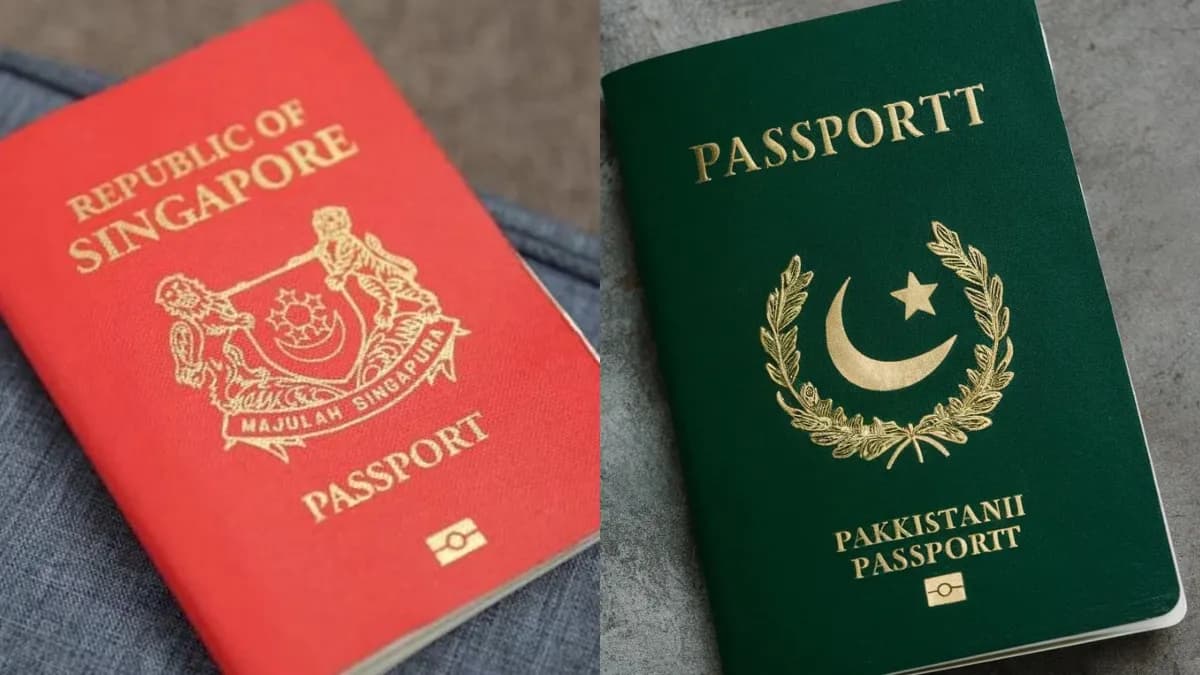We're loading the full news article for you. This includes the article content, images, author information, and related articles.
As India, a key economic partner, drops to 85th in the 2025 Henley Passport Index, Kenya maintains its regional lead at 69th, a position that directly impacts bilateral trade, tourism, and diplomatic leverage for Kenyans.

NAIROBI—India, the world's fifth-largest economy and a significant trade partner for Kenya, has seen its passport's global power decline, slipping five places to rank 85th in the 2025 Henley Passport Index released this week. The report, which ranks 199 passports based on their holders' ability to access destinations without a prior visa, shows Indian citizens can now enter 57 countries visa-free or with a visa-on-arrival, down from 62 the previous year. For Kenya, this development is more than a distant headline. The Kenyan passport, while also slipping two spots from 67th in 2024, is now ranked 69th globally, making it significantly more powerful than India's. Kenyan citizens currently have visa-free or visa-on-arrival access to 71 destinations, according to the index. This gap in travel freedom has tangible consequences for the robust economic and social ties between the two nations.
The contrast in passport strength directly affects the ease of travel and business. While Kenya implemented a visa-free policy for all international visitors in January 2024, replacing it with an Electronic Travel Authorisation (eTA) system, the process for Kenyans seeking to enter India remains more stringent. Indian nationals can apply for a Kenyan eTA online, typically processed within five business days, granting a stay of up to 90 days. Conversely, Kenyan citizens must apply for an e-Visa to India, a process that requires more documentation and can take 5-10 working days. Different visa categories exist for tourism, business, and medical purposes, with varying durations and costs, ranging from approximately KSh 10,400 for a six-month tourist visa to over KSh 30,000 for a long-term business visa. According to the High Commission of India in Nairobi, the visa-on-arrival option is not available for Kenyan citizens.
The visa disparity exists despite a thriving trade relationship. According to the Indian Department of Commerce, bilateral trade stood at US$3.35 billion in the 2023-24 fiscal year. India is a primary source of pharmaceuticals, machinery, and petroleum products for Kenya, while Kenya exports tea, coffee, and vegetables to India. However, the relative difficulty for Kenyan business people and tourists to travel to India compared to their Indian counterparts coming to Kenya could create friction in fostering deeper economic integration. Passport power is a key indicator of a nation's diplomatic influence and the trust other countries place in its citizens. A stronger passport facilitates not only tourism but also educational exchange, investment opportunities, and cultural diplomacy.
Kenya's passport remains the most powerful in the East African Community (EAC). Tanzania follows at 70th place (70 destinations), Uganda at 71st (67 destinations), and Rwanda at 73rd (63 destinations). This regional leadership enhances Kenya's position as a hub for commerce and travel. Meanwhile, India's decline is puzzling to analysts given its rapid economic growth. Experts suggest the ranking is influenced by factors beyond economics, including diplomatic relations, reciprocal visa agreements, and concerns in other nations about potential over-immigration from India's large population. Countries like Singapore and South Korea continue to dominate the index, offering their citizens access to over 190 destinations, underscoring the value of strong, long-term diplomatic engagement in building travel freedom. As global mobility becomes increasingly crucial for economic prosperity, the Henley Passport Index serves as a vital barometer. For Kenya, its stronger passport relative to a major partner like India provides a subtle but significant advantage in international dealings, reinforcing the importance of continued diplomatic efforts to expand visa-free access for its citizens worldwide.
Keep the conversation in one place—threads here stay linked to the story and in the forums.
Sign in to start a discussion
Start a conversation about this story and keep it linked here.
Other hot threads
E-sports and Gaming Community in Kenya
Active 9 months ago
The Role of Technology in Modern Agriculture (AgriTech)
Active 9 months ago
Popular Recreational Activities Across Counties
Active 9 months ago
Investing in Youth Sports Development Programs
Active 9 months ago